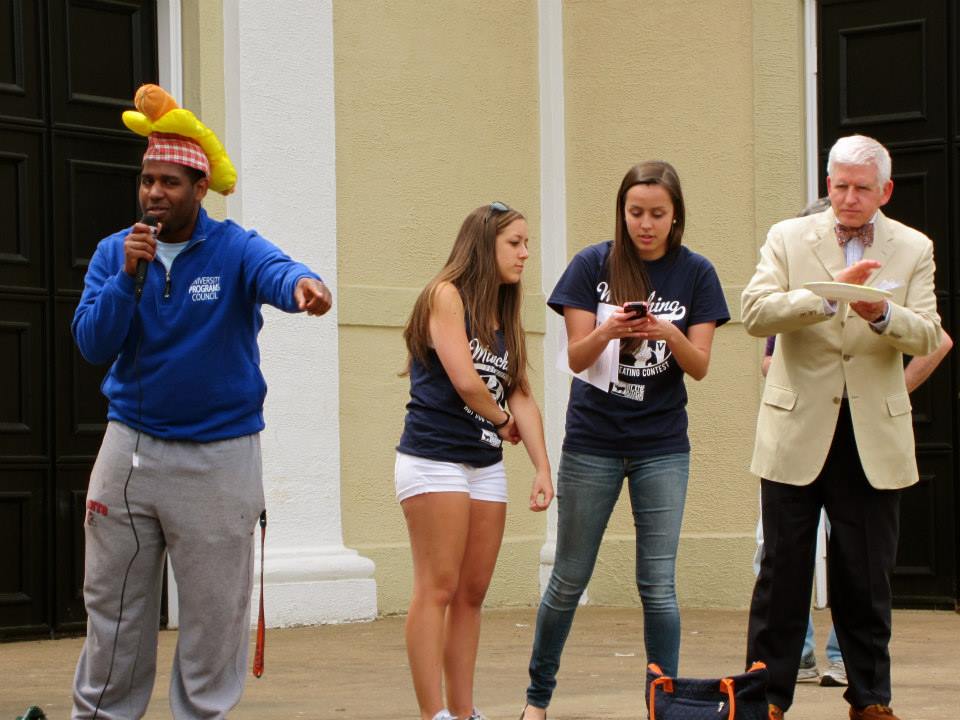Alzheimer’s disease is the only cause of death among the top 10 in America that cannot yet be prevented or cured. And though it kills more people per year than breast cancer and prostate cancer combined, it’s often given little attention in the public sphere, where Alzheimer’s and other dementia-related conditions are more often treated as inevitabilities than diseases.
June marks National Alzheimer’s and Brain Awareness Month, an advocacy effort spearheaded by the Alzheimer’s Association to raise awareness and research funding. Locally, a University of Virginia student group, Hoos for Memory, is working to end the notion that a disease that steals away memory is an inevitable part of aging.
“Every 67 seconds, someone in America develops Alzheimer’s,” said the group’s president, Lauren Goldberg, a rising fourth-year kinesiology major in the Curry School of Education, “and that number has fallen every year. The rates of many other diseases are decreasing due to research and funding, but the proportion of people with Alzheimer’s has been increasing.”
According to Goldberg, the tendency to think of Alzheimer’s as an “old-person’s disease” could be part of the reason funding has been so low compared to other common illnesses; the loss of memory is viewed as inevitable.
Hoos for Memory sponsors fundraisers and events throughout the year to support research at the U.Va. School of Medicine. Members also volunteer at a local assisted-living center and participate in the Central and Western Virginia chapter of the Alzheimer’s Association’s annual Walk to End Alzheimer’s.
This spring, the club convinced comedian Seth Rogen to make a video for its fourth annual “Munching for Memory” hot dog-eating contest. Rogen and his wife, Lauren Miller, are the founders of “Hilarity for Charity,” an annual comedy event in Los Angeles that benefits Alzheimer’s research, and recently launched “Hilarity for Charity U,” which encourages college organizations to raise awareness and funds to fight Alzheimer’s.
The U.Va. group reached out to Miller via Twitter, Goldberg said. “We eventually got in contact, and [Rogen] sent us a funny video that he made to promote the event.”
Goldberg’s late grandfather struggled with the disease, leading her to start an Alzheimer’s advocacy club at her at her high school in Norfolk. For her, the most rewarding part has been sending volunteers to local assisted-living facilities to socialize with people in Alzheimer’s units.
“It’s very eye-opening,” she said. “You can do as much fundraising as you want, but when you see how the disease affects someone, it gives you a whole new perspective.”
After age 65, the number of people in the population with Alzheimer’s doubles every five years. Almost half of people age 85 or older will have developed dementia, most of it Alzheimer’s disease, said U.Va. neurology professor Dr. Steven DeKosky, an international leader in Alzheimer’s disease research.
However, the disease can strike people as early as their 30s.
“By far, the most people who get the disease, get it as they age,” DeKosky said. “There a small number of families in the world in whom a specific mutation in one of three different genes will cause Alzheimer’s disease, and they are the younger people – usually developing the disease between 30 and 50.”
More than 5 million Americans today are living with Alzheimer’s, and that number is expected to triple by 2050, according to the Alzheimer’s Association.
“I honestly feel that if we all work together and raise as much awareness as possible, we can find treatment and even a cure at U.Va.,” Goldberg said.
This year’s Charlottesville Walk to End Alzheimer’s will be held Oct. 18, beginning in Lee Park.
Media Contact
Article Information
June 24, 2014
/content/hoos-memory-wants-change-way-you-think-about-alzheimer-s

